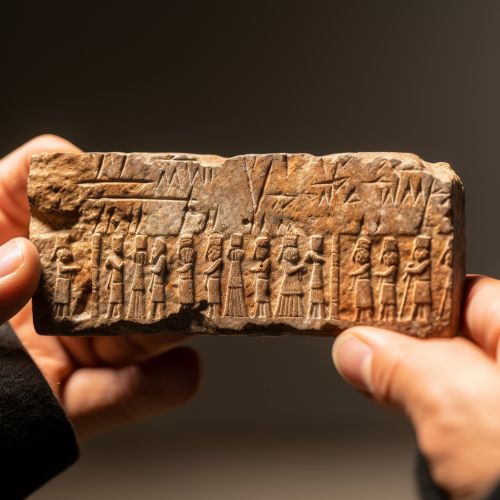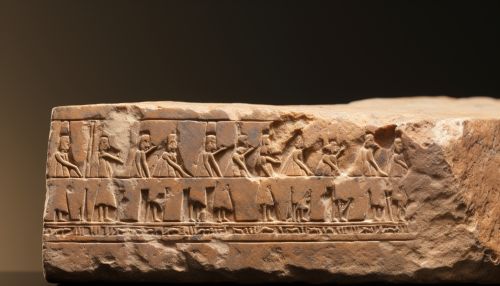Akkadian cuneiform
Origins and Development
The Akkadian cuneiform script was a semiotic system used for writing the Akkadian language, a now-extinct Semitic language that was spoken in ancient Mesopotamia. The script was adapted from the earlier Sumerian cuneiform, which was the first known writing system in the world, developed around 3200 BC in the region of Sumer. The Akkadians, who were Semitic newcomers to the region, adopted the Sumerian cuneiform around 2500 BC and adapted it to their own language.


Characteristics
Akkadian cuneiform is a logophonetic system, meaning it uses signs to represent both sounds (phonograms) and meanings (logograms). The script is made up of a combination of wedge-shaped marks, made by pressing a reed stylus into soft clay. These marks are arranged in various combinations and orientations to represent different sounds and words.
Use and Dissemination
The Akkadian cuneiform script was used for several centuries, not only for writing the Akkadian language but also for other languages of the region, such as Babylonian and Assyrian. The script was widely disseminated through trade and diplomacy, and it influenced the development of several other writing systems, including Ugaritic and Old Persian cuneiform.
Decipherment
The Akkadian cuneiform script was deciphered in the 19th century, largely through the efforts of the British Assyriologist Henry Rawlinson. The decipherment of Akkadian cuneiform was a major step in the development of Assyriology, the scientific study of the languages and civilizations of ancient Mesopotamia.
Legacy
The Akkadian cuneiform script is an important part of our cultural heritage, providing a window into the ancient civilizations of Mesopotamia. It is also a testament to the ingenuity of the human mind, as one of the earliest known writing systems.
